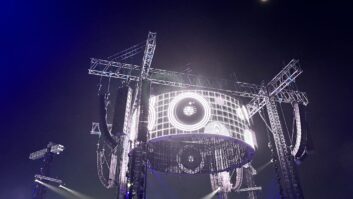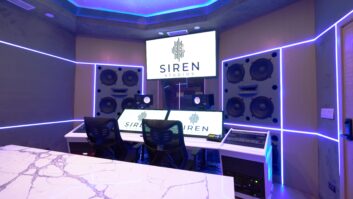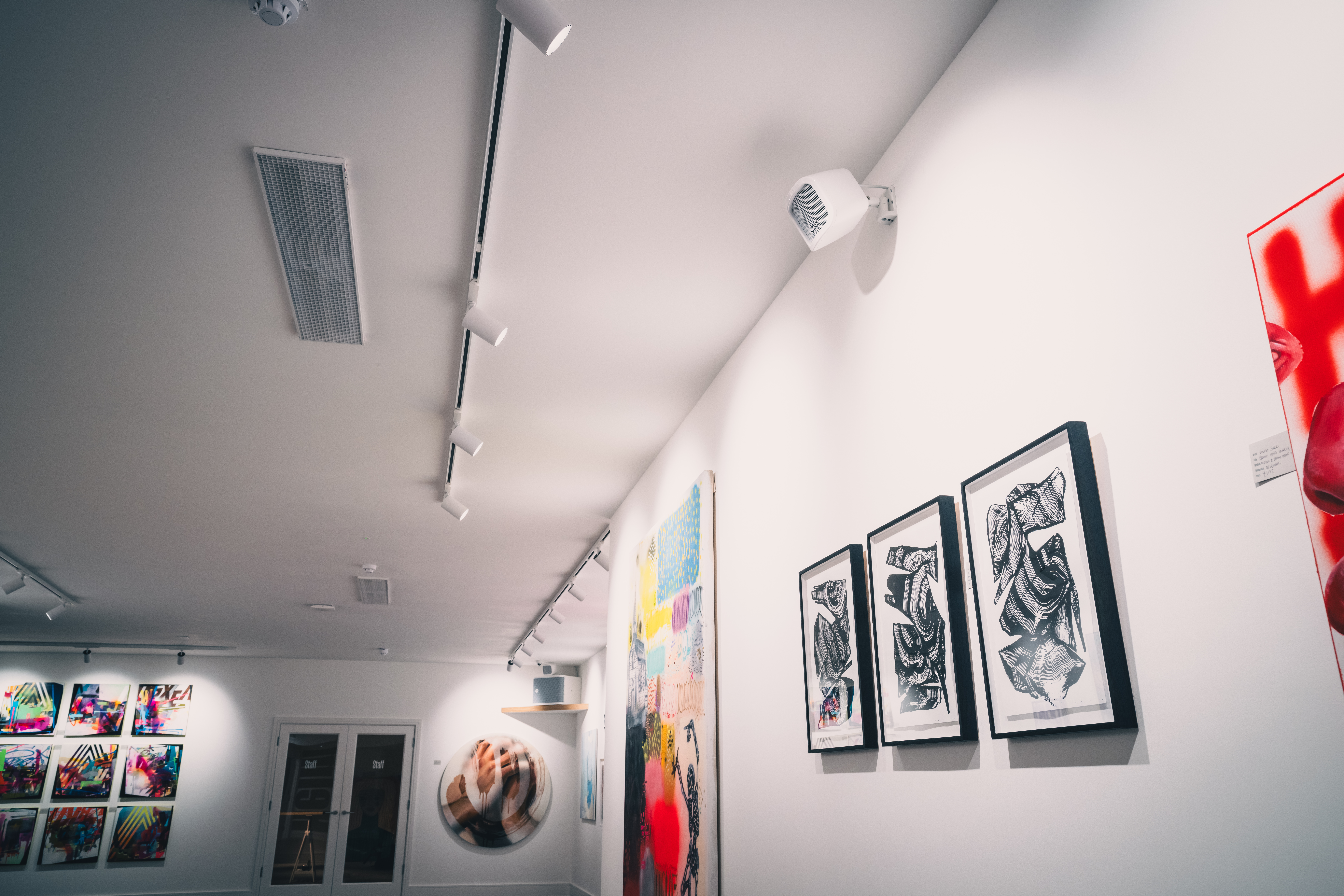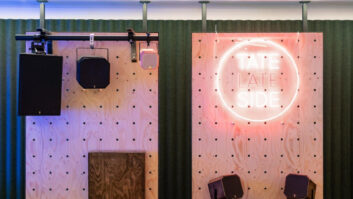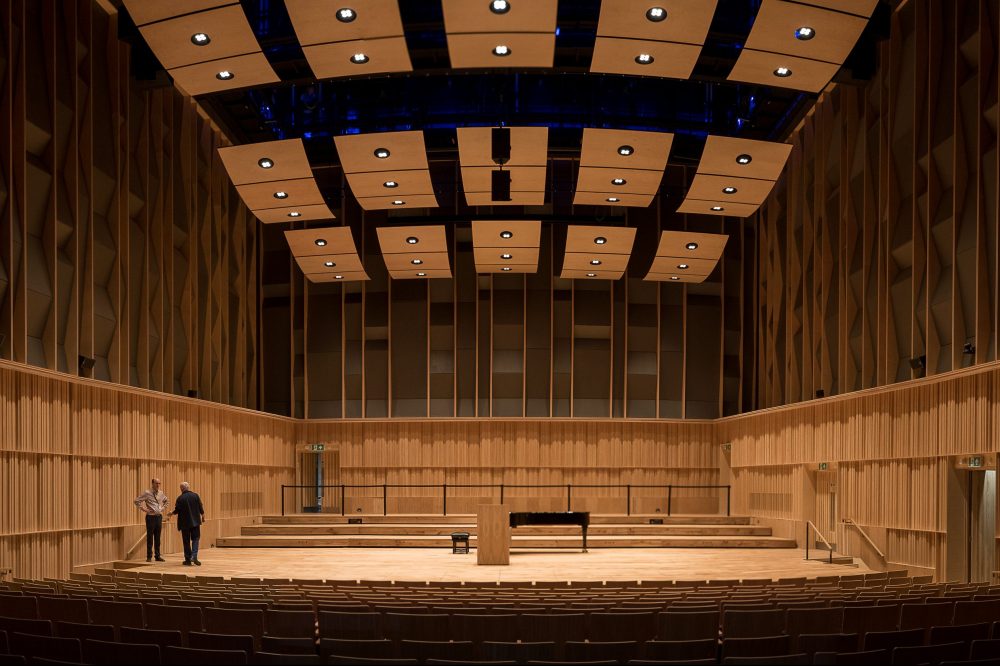
Recently granted the great distinction of a royal title by Her Majesty The Queen, the new £57m Royal Birmingham Conservatoire is a state-of-the-art music facility. Now part of Birmingham City University’s City Centre Campus, the music and drama academy is the first purpose-built music college to be constructed in the UK since 1987 and the only one in the UK which has been specifically designed to cater for the demands of the digital age.
Opened in early September 2017 by Professor Julian Lloyd Webber, the renowned cellist and principal of the Conservatoire, it boasts five new public performance spaces including a 500-seat concert hall, a 150-seat recital hall and a 100-seat organ studio, plus The Lab (a completely flexible black-box studio) and the first permanent jazz space in any UK conservatoire, the 80-seat Eastside Jazz Club.
The new facility also offers more than 70 teaching practice rooms in addition to private rehearsal rooms and dedicated teaching spaces for musicians and is located very close to Birmingham City University’s wealth of media and recording facilities, including four TV studios and Europe’s largest static green screen.
In keeping with the core values of providing absolute state-of-the art facilities, the performance spaces have been equipped throughout with an impressive array of Meyer Sound loudspeakers and associated equipment, supplied by Autograph Sales & Installations.
The main concert hall features a distributed audio system which utilises nine Meyer Sound UP-4XP, 13 UP-Junior, four UPA-1P, four UPA-2P loudspeaker modules with four 500-HP subwoofers providing low-frequency reinforcement. The entire system is controlled by a pair of Meyer Sound Galileo Galaxy networkable loudspeaker processors and an RMServer to support Meyer’s own proprietary network management system, plus MPS-488HP power supplies and MDM-832 power and signal distribution units.
The Lab experimental space is equipped with an audio system designed to match the flexibility and varied uses of the room. Eight Meyer Sound UP-Junior-XP loudspeakers (running on Meyer’s Intelligent DC technology, which offers significant savings in cabling) are joined by four UPA-2P and a pair of 500-HP subwoofers, with system control, power and signal distribution provided by a further Galileo Galaxy, MPS-488HP, MDM-832 and RMServer.
The Eastside Jazz Club features yet more Meyer Sound products, again featuring MDM-832/Galileo Galaxy controllers looking after a pair of Meyer’s UPJ-1P and two 500-HP subwoofers while the Recital Hall boasts eight UPJunior-XP loudspeakers, four of the new super-compact MJF-208 floor monitors, four UPA-2P, two more 500-HP all also run from a Galileo Galaxy/MPS-488HP/MDM-832 control and distribution network.
Finally the organ studio has been fitted with a further pair of Galileo Galaxy-controlled UPJ-1P speakers while the main foyer space includes six MM-4XP miniature loudspeakers controlled from a single MPS-488HP power supply. Suitable rigging hardware was also supplied for every loudspeaker to allow unobtrusive installation in the respective spaces.
Matthew O’Malley, new build technical development manager and studio manager at the Royal Birmingham Conservatoire commented: “The performance venues have to cater for a wide range of applications from a hi-fidelity light-touch reinforcement system for classical, jazz and electro-acoustic music to full rock ’n’ roll power PA. These were the guiding principles we set for ourselves during the initial research phase of the build.
“My colleague Richard Cornock (music technologies manager) and I evaluated many of the leading PA speaker manufacturers. Using reference quality audio files, we assessed the sonic attributes and benefits of each of the PA systems and after much deliberation, it was decided that Meyer Sound were the most ideally suited to fulfil these exacting requirements.”
The amazingly diverse range of events being presented at the Conservatoire’s various venues soon after its opening neatly emphasises O’Malley’s comments.
